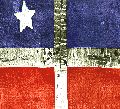Grito de Lares
| Grito de Lares |
|||||||
|---|---|---|---|---|---|---|---|
 |
The Grito de Lares (English: Cry of Lares)—also referred to as the Lares uprising, the Lares revolt, the Lares rebellion, or the Lares revolution—was the first major revolt against Spanish rule in Puerto Rico. The short-lived revolt was planned by Ramón Emeterio Betances and Segundo Ruiz Belvis. It began on September 23, 1868, in the town of Lares, for which it is named, and spread rapidly to various revolutionary cells throughout the island.
In the 1860s, the government of Spain was involved in several conflicts across Latin America. It became involved in a war with Peru and Chile, and had to address slave revolts in Cuba. At the time, Puerto Rico and Cuba also suffered a severe economic crisis, due to increasing tariffs and taxes imposed by the Spanish central government on most import and export goods—the Spanish crown needed these funds badly, to subsidize its troops in the Dominican Republic.
In mid-19th century Puerto Rico, many supporters of independence from Spain, as well as others who did not support independence from Spain, but who simply called for liberal reforms, were jailed or exiled. However, in 1865, the central government in Madrid, finally attempted to appease the growing discontent in all its overseas provinces by setting up a "board of review" to receive complaints from provincial representatives. This board, the Junta Informativa de Reformas de Ultramar (Informative Board on Overseas Reforms) would be formed by representatives of each overseas province, in proportion to their collective population. The board would meet in Madrid, then report to the Minister of State (Ministro de Estado), Emilio Castelar.
The Puerto Rican delegation was freely elected by those eligible to vote (male Caucasian property owners), in what was one of the first exercises of political openness in Spain. Separatist Segundo Ruiz Belvis was elected to the Junta representing Mayagüez, something that horrified the governor of Puerto Rico as well as most of residents of the island, since the majority of Puerto Ricans did not support independence from the rest of Spain.
...
Wikipedia
